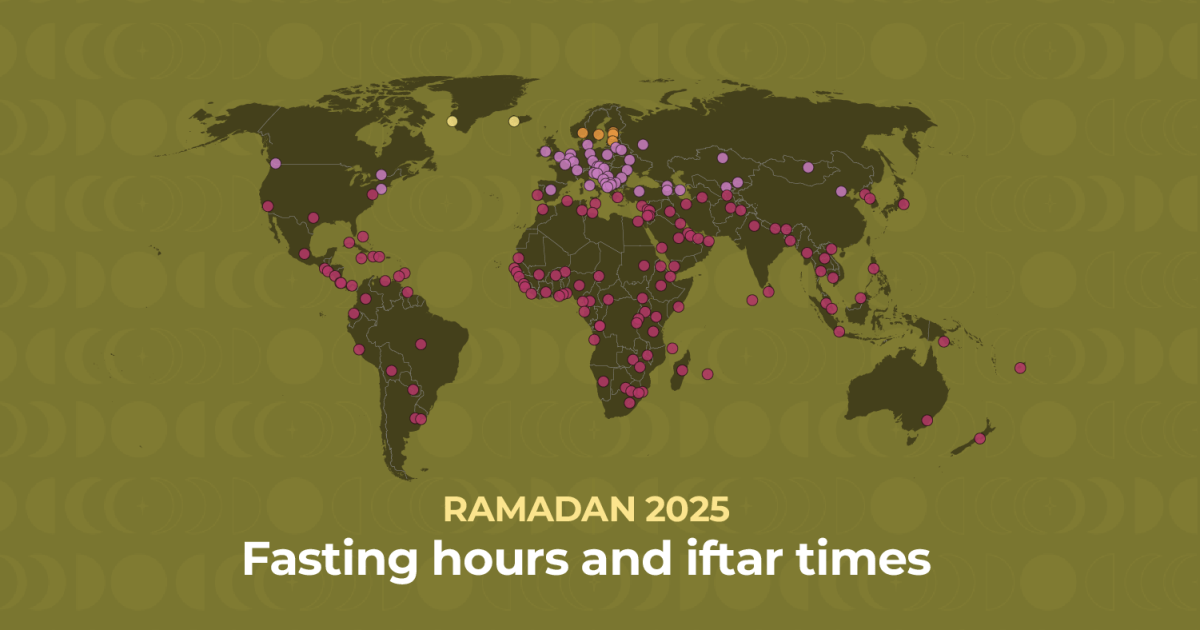Scholarly Showdown: Houston University Stands Firm on Hindu Religion Course Despite Mounting Criticism
Religion
2025-03-29 02:38:00Content

The University of Houston has stood firm in its defense of a religious studies course focusing on Hinduism, emphasizing that academic terminology such as "fundamentalism" is a standard scholarly approach to analyzing religious movements. The university's stance highlights the importance of academic freedom and rigorous scholarly discourse in exploring complex religious topics.
By using specialized academic language, the course aims to provide students with a nuanced and critical understanding of religious dynamics, particularly within the context of Hindu traditions. The university maintains that such terminology is not intended to be pejorative, but rather serves as a precise analytical tool for examining religious ideologies and their societal implications.
This defense underscores the institution's commitment to maintaining academic integrity and promoting intellectual exploration of religious studies, ensuring that students are exposed to comprehensive and scholarly perspectives on religious phenomena.
Academic Freedom and Religious Studies: University of Houston's Controversial Course Sparks Dialogue
In the ever-evolving landscape of higher education, academic institutions continue to navigate the delicate balance between scholarly exploration and cultural sensitivity. The University of Houston finds itself at the center of a nuanced discussion surrounding its approach to religious studies, challenging conventional boundaries of academic discourse and intellectual inquiry.Challenging Perspectives: When Academic Language Meets Cultural Complexity
The Essence of Academic Terminology
Academic discourse often requires precise language that may appear provocative or challenging to external observers. The University of Houston's religious studies course has illuminated the intricate dynamics of scholarly communication, particularly when examining complex religious narratives. Scholars argue that terms like "fundamentalism" are not inherently pejorative but represent critical analytical frameworks designed to understand multifaceted religious phenomena. Researchers emphasize that academic terminology serves as a sophisticated tool for unpacking intricate religious structures, belief systems, and historical developments. The university's defense underscores the importance of maintaining intellectual rigor while respecting diverse cultural perspectives. This approach demands nuanced understanding, recognizing that academic language operates within specific intellectual contexts.Navigating Cultural Sensitivities in Higher Education
The controversy surrounding the course highlights broader challenges faced by educational institutions when addressing sensitive cultural and religious topics. Universities must balance academic freedom with cultural respect, creating spaces for critical examination while maintaining sensitivity to diverse student experiences. Experts suggest that such courses provide invaluable opportunities for students to develop critical thinking skills, encouraging them to examine religious phenomena through multiple analytical lenses. By introducing complex terminologies and perspectives, academic programs aim to foster deeper understanding and intellectual growth beyond surface-level interpretations.The Role of Religious Studies in Contemporary Academia
Religious studies represent a critical field of academic inquiry, offering profound insights into human cultural experiences. The University of Houston's approach demonstrates a commitment to scholarly exploration that transcends simplistic narratives, encouraging students to engage with complex religious dynamics critically and compassionately. Contemporary academic research emphasizes the importance of interdisciplinary approaches, recognizing that religious understanding requires nuanced perspectives from sociology, anthropology, history, and cultural studies. By employing sophisticated analytical frameworks, scholars can deconstruct traditional narratives and provide more comprehensive interpretations of religious experiences.Institutional Response and Academic Integrity
The university's robust defense of its course methodology reflects a broader commitment to academic integrity and intellectual freedom. Educational institutions must create environments that encourage rigorous scholarly examination, even when such exploration might challenge existing perceptions or provoke uncomfortable conversations. By maintaining transparent communication and providing context for academic terminology, universities can mitigate potential misunderstandings and demonstrate the value of scholarly discourse. This approach requires ongoing dialogue, mutual respect, and a commitment to intellectual growth that transcends cultural and disciplinary boundaries.Broader Implications for Higher Education
The University of Houston's experience serves as a microcosm of larger conversations happening within academic circles worldwide. As educational institutions grapple with increasingly complex global narratives, the ability to navigate cultural sensitivities while maintaining scholarly standards becomes paramount. Educators and researchers continue to develop more sophisticated approaches to discussing religious phenomena, recognizing the need for nuanced, respectful, and critically engaged scholarship. This ongoing evolution represents a crucial aspect of academic progress, challenging students and scholars to think beyond traditional boundaries and embrace more comprehensive understanding.RELATED NEWS
Religion

Divine Connections: How Faith-Based Dating Apps Are Revolutionizing Modern Romance
2025-04-21 11:00:33
Religion

Breaking: Pat Spencer's Cultural Roots Unveiled - The Untold Story Behind the Warriors Sensation
2025-03-16 02:05:22






